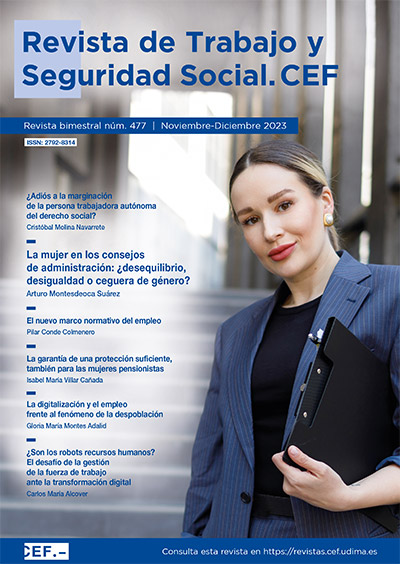An examination of pensioners' income as determined for tax purposes and the concession of additional pension supplements to reach the legal minimum. Must the referral of Social Security regulations to income tax rules and definitions be "blind"?
DOI:
https://doi.org/10.51302/rtss.2023.3331Keywords:
pensions, additional pension supplements to reach the legal minimum, income, work, capital, business activities, capital gainsAbstract
Article 59 of the revised text of the Ley general de la Seguridad Social (General Social Security Act), on regulating the additional supplements to be added to those contributory pensions that fall below the minimum legal level, refers to tax legislation, more specifically the impuesto sobre la renta de las personas físicas (personal income tax) in order to decide the level of income received by the pensioner for the purpose of receiving, where applicable, such a supplement to his or her pension. These supplements raise the amount of the pension to the amount stipulated by the Ley de presupuestos generales del Estado (State Budgetary Legislation) and the corresponding rules of implementation in order to guarantee a minimum pension.
This referral gives rise to interpretative problems, not only with respect to obtaining the amounts corresponding to the different types of income received by the pensioner, which may derive from personal labour, from investment capital, business activities or capital gains as defined strictly from the point of view of tax regulations, but also with respect to the conflicts in qualificatory criteria that may arise when the tax regulations are transposed into the framework of Social Security law and regulatory practices, which can view a particular case from a different perspective.
Downloads
References
Lasarte Álvarez, F. J. (2021). Planes de pensiones. Reflexiones críticas sobre su régimen fiscal. Thomson Reuters Aranzadi.
Martín Valverde, A. y García Murcia, J. (Dirs.). (2015). Tratado práctico de derecho de la Seguridad Social. Thomson Reuters Aranzadi.



















